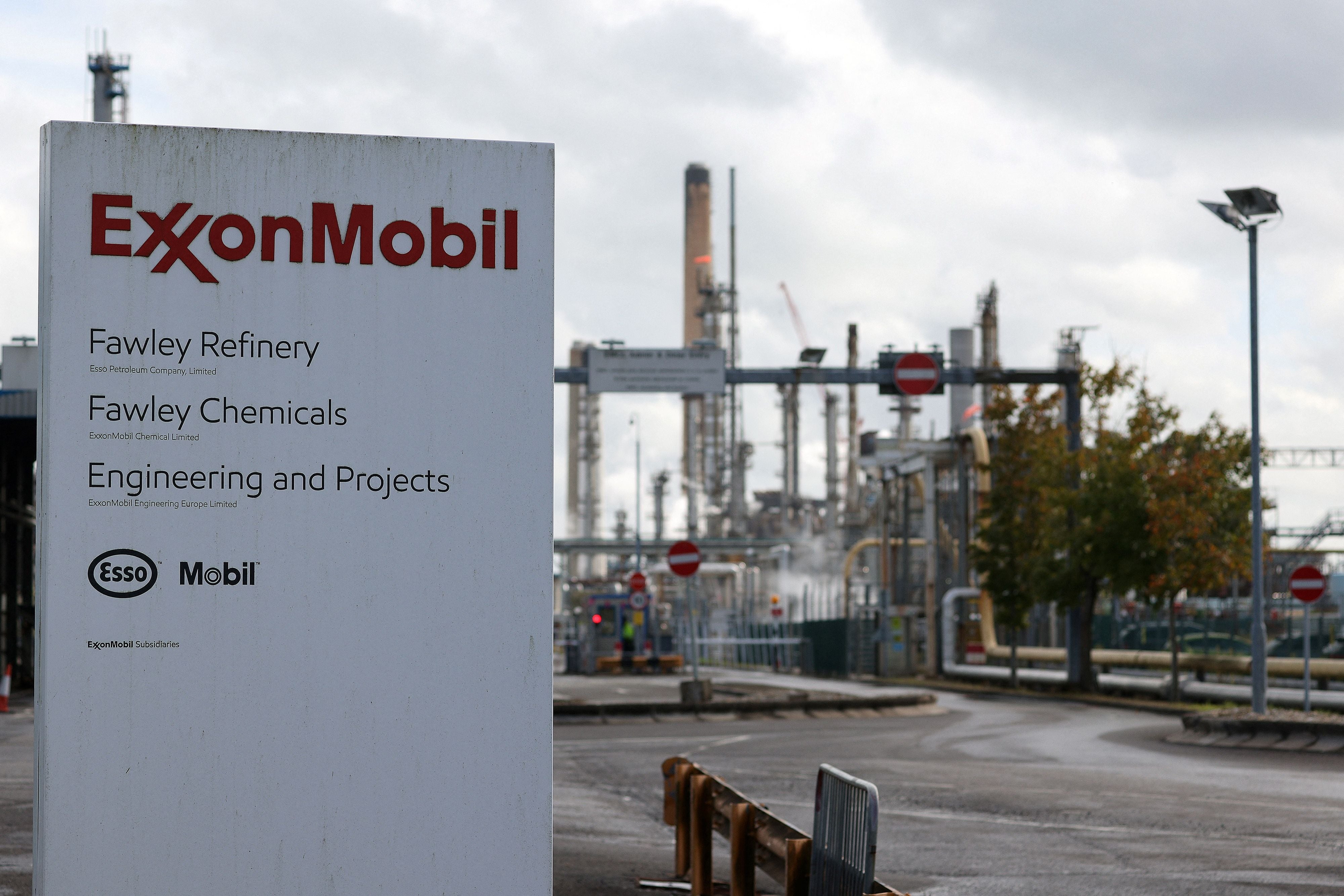Exxon mines bitcoin with excess energy from fossil fuels, report claims
The company is said to be considering plots full of thousands of crypto miners in Alaska, Nigeria, Argentina, Guyana and Germany

ExxonMobil, the company that produces the most oil and gas in the United States, is now reportedly also mining bitcoin.
The company set up a pilot operation in North Dakota in January 202,1 according to CNBC, which was expanded in July. It works by diverting natural gas that would be burned off into generators into electricity that powers shipping containers that house thousands of bitcoin miners.
After experimenting in North Dakota, Exxon is now reportedly considering similar pilots in Alaska, Nigeria, Argentina, Guyana and Germany.
Rather than being directly focused on generating cryptocurrency, the venture is focused on the company’s pledge to reduce emissions. The crypto mining that would be conducted through this scheme would apparently cut the company’s carbon dioxide by 63 per cent compared to the flaring done now.
Drillers generally flare gas because it is less damaging to the environment than venting, which releases it directly into the air. Some methane, however, does escape, because of other variables such as wind.
This means that on-site mining becomes an attractive solution to large companies. “Nobody will run it through a generator unless they can make money, because generators cost money to acquire and maintain,” Adam Ortolf, of portable mining company Upstream Data, told CNBC. “So unless it’s economically sustainable, producers won’t internally combust the gas.”
The gas in this situation will still be burned and carbon dioxide will still be released into the atmosphere, but large companies argue that the energy is being used rather than being wasted.
Speaking to Bloomberg, who reported on the technology earlier this month, Danielle Fugere, president of an environmental shareholder-activist group As You Sow, said that while it was positive that Exxon found a use for the gas, it and companies like it would do better to dedicatedly move away from fossil fuels.
ExxonMobil did not respond to The Independent’s request for comment before time of publication.
“We continuously evaluate emerging technologies aimed at reducing flaring volumes across our operations,” spokeswoman Sarah Nordin told Bloomberg, but declined to comment on “rumours and speculations regarding the pilot project.”

Join our commenting forum
Join thought-provoking conversations, follow other Independent readers and see their replies
0Comments